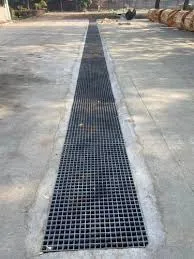
-
 Afrikaans
Afrikaans -
 Albanian
Albanian -
 Amharic
Amharic -
 Arabic
Arabic -
 Armenian
Armenian -
 Azerbaijani
Azerbaijani -
 Basque
Basque -
 Belarusian
Belarusian -
 Bengali
Bengali -
 Bosnian
Bosnian -
 Bulgarian
Bulgarian -
 Catalan
Catalan -
 Cebuano
Cebuano -
 China
China -
 China (Taiwan)
China (Taiwan) -
 Corsican
Corsican -
 Croatian
Croatian -
 Czech
Czech -
 Danish
Danish -
 Dutch
Dutch -
 English
English -
 Esperanto
Esperanto -
 Estonian
Estonian -
 Finnish
Finnish -
 French
French -
 Frisian
Frisian -
 Galician
Galician -
 Georgian
Georgian -
 German
German -
 Greek
Greek -
 Gujarati
Gujarati -
 Haitian Creole
Haitian Creole -
 hausa
hausa -
 hawaiian
hawaiian -
 Hebrew
Hebrew -
 Hindi
Hindi -
 Miao
Miao -
 Hungarian
Hungarian -
 Icelandic
Icelandic -
 igbo
igbo -
 Indonesian
Indonesian -
 irish
irish -
 Italian
Italian -
 Japanese
Japanese -
 Javanese
Javanese -
 Kannada
Kannada -
 kazakh
kazakh -
 Khmer
Khmer -
 Rwandese
Rwandese -
 Korean
Korean -
 Kurdish
Kurdish -
 Kyrgyz
Kyrgyz -
 Lao
Lao -
 Latin
Latin -
 Latvian
Latvian -
 Lithuanian
Lithuanian -
 Luxembourgish
Luxembourgish -
 Macedonian
Macedonian -
 Malgashi
Malgashi -
 Malay
Malay -
 Malayalam
Malayalam -
 Maltese
Maltese -
 Maori
Maori -
 Marathi
Marathi -
 Mongolian
Mongolian -
 Myanmar
Myanmar -
 Nepali
Nepali -
 Norwegian
Norwegian -
 Norwegian
Norwegian -
 Occitan
Occitan -
 Pashto
Pashto -
 Persian
Persian -
 Polish
Polish -
 Portuguese
Portuguese -
 Punjabi
Punjabi -
 Romanian
Romanian -
 Russian
Russian -
 Samoan
Samoan -
 Scottish Gaelic
Scottish Gaelic -
 Serbian
Serbian -
 Sesotho
Sesotho -
 Shona
Shona -
 Sindhi
Sindhi -
 Sinhala
Sinhala -
 Slovak
Slovak -
 Slovenian
Slovenian -
 Somali
Somali -
 Spanish
Spanish -
 Sundanese
Sundanese -
 Swahili
Swahili -
 Swedish
Swedish -
 Tagalog
Tagalog -
 Tajik
Tajik -
 Tamil
Tamil -
 Tatar
Tatar -
 Telugu
Telugu -
 Thai
Thai -
 Turkish
Turkish -
 Turkmen
Turkmen -
 Ukrainian
Ukrainian -
 Urdu
Urdu -
 Uighur
Uighur -
 Uzbek
Uzbek -
 Vietnamese
Vietnamese -
 Welsh
Welsh -
 Bantu
Bantu -
 Yiddish
Yiddish -
 Yoruba
Yoruba -
 Zulu
Zulu
fiberglass reinforced plastic pipe
Fiberglass Reinforced Plastic Pipes A Modern Solution for Various Applications
Fiberglass reinforced plastic (FRP) pipes have emerged as a revolutionary solution in the piping industry, combining the advantageous properties of fiberglass with the versatility of plastic
. This unique combination results in pipes that are lightweight, durable, and resistant to various environmental conditions, making them suitable for a wide range of applications.One of the primary benefits of FRP pipes is their remarkable strength-to-weight ratio. Unlike traditional materials such as steel and concrete, fiberglass pipes are significantly lighter, which simplifies installation and reduces labor costs. This is particularly beneficial in remote locations or sites where heavy lifting equipment may not be available. The lightweight nature of these pipes enables easier transportation and handling, making them an ideal choice for construction projects where logistics can be a challenge.
In terms of durability, FRP pipes excel in resisting corrosion and chemical attack. This makes them particularly suitable for industries such as oil and gas, wastewater treatment, and chemical processing, where pipes are often exposed to harsh environmental conditions and corrosive substances. The internal and external surfaces of the pipes can be customized with specific resin formulations to enhance their resistance to particular chemicals, providing a tailored solution for diverse applications. This corrosion resistance not only extends the lifespan of the pipes but also reduces maintenance costs, which can significantly impact the overall budget of industrial projects.
Furthermore, FRP pipes boast excellent thermal insulation properties. Unlike metal pipes, which can conduct heat and result in energy loss, fiberglass pipes provide effective insulation that minimizes energy consumption in heating and cooling applications. This characteristic is particularly valuable in industries such as HVAC (heating, ventilation, and air conditioning) and food processing, where maintaining specific temperature ranges is crucial.
fiberglass reinforced plastic pipe

Another significant advantage of FRP pipes is their adaptability in various environments. Whether installed underground, underwater, or above ground, fiberglass pipes can withstand fluctuations in temperature and pressure. Their flexibility allows for easier installation in challenging terrains and reduces the risk of damage during seismic activities or ground movement. This adaptability, coupled with their longevity, makes them a preferred choice for infrastructure projects, including water supply systems, irrigation networks, and sewage systems.
Additionally, the smooth interior surface of FRP pipes reduces friction losses, leading to improved flow rates and energy efficiency in fluid transport. The lower hydraulic friction also translates to reduced pumping costs, benefiting industries that rely heavily on efficient water and wastewater management systems.
Despite their numerous advantages, it’s important to consider that the initial cost of FRP pipe installation may be higher than that of conventional materials. However, the long-term savings achieved through reduced maintenance, enhanced durability, and improved energy efficiency often justify the investment.
In conclusion, fiberglass reinforced plastic pipes stand out as a modern solution that addresses the limitations of traditional piping materials. Their strength, lightweight nature, resistance to corrosion, thermal insulation, and adaptability make them suitable for a variety of applications across multiple industries. As technology continues to advance and the demand for efficient and sustainable solutions grows, FRP pipes will likely become an increasingly integral component of piping systems worldwide.
Latest news
-
Exploring the Benefits of Top Hammer Drifter Rods for Enhanced Drilling PerformanceNewsJun.10,2025
-
High-Precision Fiberglass Winding Machine for GRP/FRP Pipe Production – Reliable & Efficient SolutionsNewsJun.10,2025
-
FRP Pipes & Fittings for Shipbuilding - Corrosion-Resistant & LightweightNewsJun.09,2025
-
Premium FRP Flooring Solutions Durable & Slip-ResistantNewsJun.09,2025
-
Premium Fiberglass Rectangular Tanks Durable & Lightweight SolutionNewsJun.09,2025
-
Tapered Drill String Design Guide Durable Performance & UsesNewsJun.09,2025









